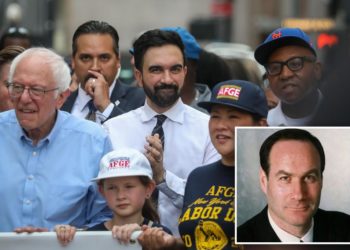Democracies are backsliding and freedom is increasingly under threat across the globe. And the U.S. government has directed its embassies to watch in silence. That silence is not neutral—it is a green light to authoritarian regimes and it undermines our nation’s values and our global standing. By abdicating our role as a global champion of democracy, we are abandoning our allies in the global fight for freedom.
For decades, Republican and Democratic administrations have understood that advancing democracy abroad creates allies and contributes to a more stable and economically successful world. But recent U.S. policy reflects a deliberate and alarming turn away from this tradition.
Secretary of State Marco Rubio’s instruction to State Department personnel to avoid commenting on the fairness or integrity of foreign elections is the latest in a series of actions that diminish America’s voice on democracy. The United States Agency for International Development (USAID) and several State Department programs that support democratic governance have been gutted or eliminated altogether. More than 1,300 diplomats, many of whom specialized in democracy and human rights, have been removed.
The U.S. has withdrawn from multilateral organizations focused on human rights and global cooperation, including the UN Human Rights Council, World Health Organization, and UNESCO, the United Nations cultural agency. These actions amount to an abdication of our international leadership and a forfeiture of our global influence.
Read More: Trump Shatters a Long Legacy of Bipartisan Support for Promoting Democracy Abroad
Standing up for democracy and standing against authoritarians is a core American value. When we disavow this cause, we act against our interests. Over the past 35 years, The Carter Center has observed more than 125 elections around the globe. I have participated in seven of those missions, traveling to places like Liberia and Guyana to bear witness to the sacred electoral act of self-determination. I have witnessed how standing up for election integrity can bolster faith in democracy, promote resilience, support the peaceful transfer of power, and contribute to regional stability.
When the United States speaks out against anti-democratic measures, either publicly amplifying the findings of independent observers or quietly advocating behind the scenes, it can deter authoritarian backsliding and support peaceful citizens striving for freedom. Our newfound silence now sends the opposite message. For reformers, journalists, and activists fighting for freedom in hostile environments, the absence of American support is not just disheartening, it is dangerous. Repressive regimes are emboldened. Corruption proliferates. Disinformation thrives. And far too often, countries are plunged into intractable conflict that leads to regional instability with global implications.
The truth is, the United States has never stood alone in its commitment to democracy. Our greatest victories have come when we stood with the people across the world who believe in freedom, who risk their lives for fair elections, free speech, and the rule of law. Some argue that putting “America First” means stepping back from these responsibilities. But promoting democracy has never been charity work—it is a core part of keeping America safe, prosperous, and admired. America First should not mean democracy last.
Read More: We Can Stop the Rise of American Autocracy
It is not too late to change course. We must recommit to the work of defending democratic values abroad. That means restoring support for human rights programs. It means empowering our representatives abroad to speak the truth about election integrity. It means honoring—not dismantling—the international institutions built to carry out this mission. And yes, it means being willing to name and challenge authoritarianism wherever it arises.
My grandfather, President Jimmy Carter, spent his life on this project. As he once said, “Rosalynn and I have strived to advance human rights in countries around the world. In this quest, we have seen that silence can be as deadly as violence.”
Standing up for freedom and democracy around the world paves the way for peace, prosperity, and a brighter future for the generations to come. America once led with these ideals, and in turn was recognized as the leader of the free world. We can—and must—revive our commitment to democracy to avoid an authoritarian future with more conflict, more instability, and more injustice.
The post Jason Carter: ‘America First’ Doesn’t Mean Ignoring Democracy Abroad appeared first on TIME.




